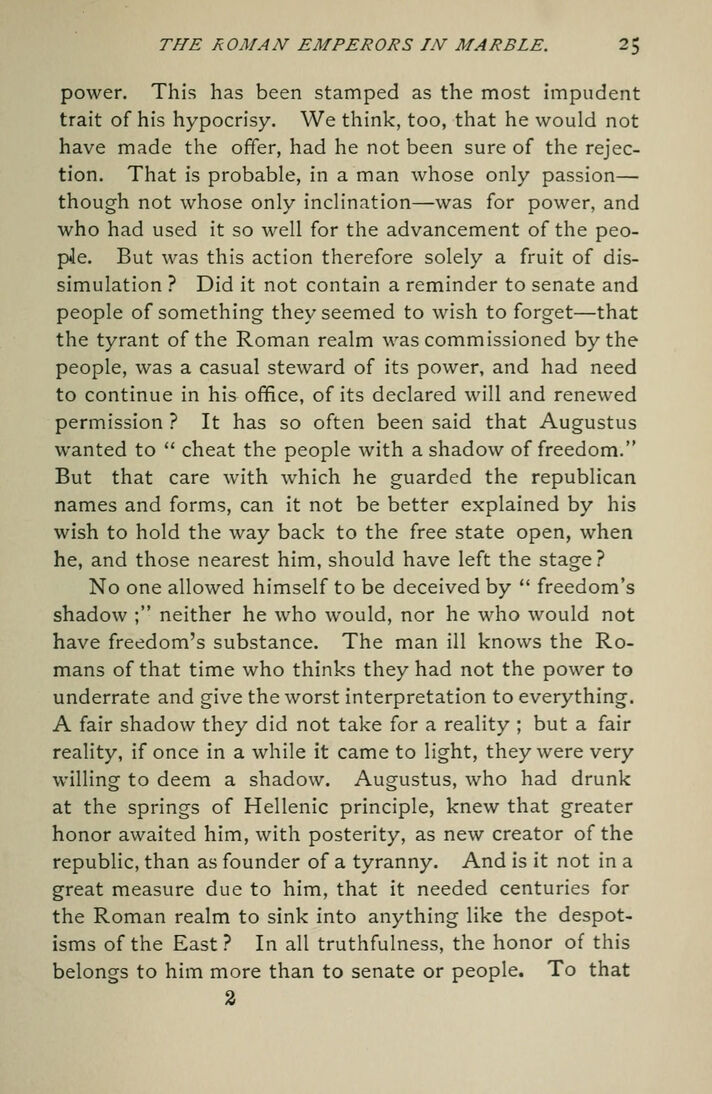
Full resolution (JPEG) - On this page / på denna sida - The Roman Emperors in Marble - 1. Julius Caesar and Augustus

<< prev. page << föreg. sida << >> nästa sida >> next page >>
Below is the raw OCR text
from the above scanned image.
Do you see an error? Proofread the page now!
Här nedan syns maskintolkade texten från faksimilbilden ovan.
Ser du något fel? Korrekturläs sidan nu!
This page has never been proofread. / Denna sida har aldrig korrekturlästs.
THE ROMAN EMPERORS IN MARBLE. 2$
power. This has been stamped as the most impudent
trait of his hypocrisy. We think, too, that he would not
have made the offer, had he not been sure of the rejec-
tion. That is probable, in a man whose only passion
—
though not whose only inclination—was for power, and
who had used it so well for the advancement of the peo-
ple. But was this action therefore solely a fruit of dis-
simulation ? Did it not contain a reminder to senate and
people of something they seemed to wish to forget—that
the tyrant of the Roman realm was commissioned by the
people, was a casual steward of its power, and had need
to continue in his office, of its declared will and renewed
permission ? It has so often been said that Augustus
wanted to ’’
cheat the people with a shadow of freedom."
But that care with which he guarded the republican
names and forms, can it not be better explained by his
wish to hold the way back to the free state open, when
he, and those nearest him, should have left the stage?
No one allowed himself to be deceived by " freedom’s
shadow ;" neither he who would, nor he who would not
have freedom’s substance. The man ill knows the Ro-
mans of that time who thinks they had not the power to
underrate and give the worst interpretation to everything.
A fair shadow they did not take for a reality ; but a fair
reality, if once in a while it came to light, they were very
willing to deem a shadow. Augustus, who had drunk
at the springs of Hellenic principle, knew that greater
honor awaited him, with posterity, as new creator of the
republic, than as founder of a tyranny. And is it not in a
great measure due to him, that it needed centuries for
the Roman realm to sink into anything like the despot-
isms of the East ? In all truthfulness, the honor of this
belongs to him more than to senate or people. To that
2
<< prev. page << föreg. sida << >> nästa sida >> next page >>